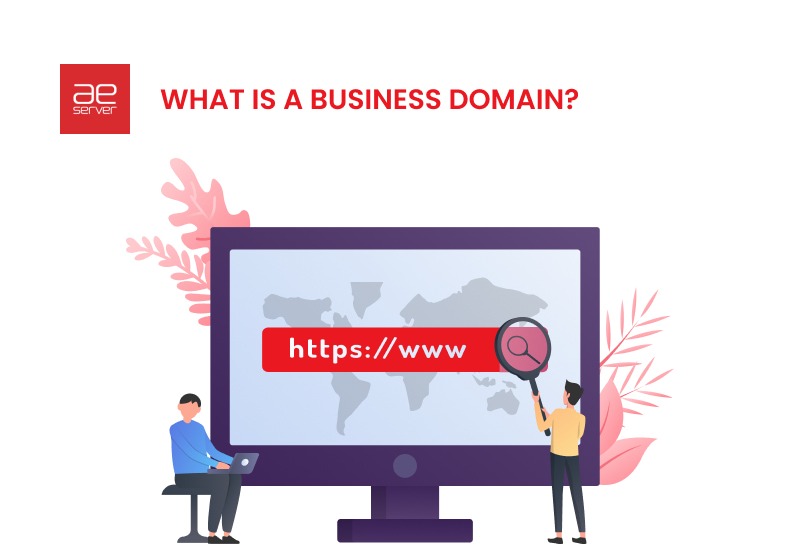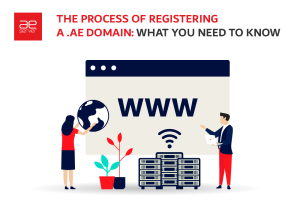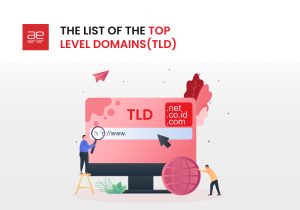In the realm of commerce, the term “business domain” assumes a paramount significance, while shrouded in mystery. It’s a complex concept encompassing a company’s operations’ extent, structure, and boundaries. But what precisely is a business domain?
A domain is where a corporation’s ventures are explained within a finite framework. It embodies the synthesis of products, services, and markets it serves and the systemic interplay of industry forces. The domain represents the distinguishing sphere within which a company transacts. It’s the singular tapestry woven by the combination of expertise, assets, and customers.
The organization’s strategic objectives etch complexity into this intricate structure. It is a dynamic matrix, receptive to adaptation in response to evolving market dynamics and technological trends. A comprehension of the sense of the business domain is essential for managing the enterprise. In the stormy sea of commerce, clarity about the business domain definition is the compass that guides the company course.
Table of Contents
Why Business Domains Matter
The concept of a “domain for business” often escapes clarity. However, domains hold immense influence. A domain is the canvas upon which strategies and operations unwind. It’s a field defined by scope, jurisdiction, and specialization.
- Business domains are influential and multifaceted.
A company moves on, utilizing its resources and expertise, seeking market supremacy. Precision in defining the domain directs efforts focused and uniform manner. It accentuates operational boundaries and objectives. Understanding the topic helps adaptability in a dynamic marketplace, enhancing competitiveness and sustainability.
- They define scope, specialization, and boundaries.
Through strategic orientation within their domain, organizations chart growth and exploit opportunities. Business domains determine clientele, competition, and product landscapes. They are the center upon which success pivots.
- Strategic orientation charts growth and opportunities.
Domains are multifaceted. They extend across industries, continents, and digital realms. Exploring new horizons within your established domain can uncover fresh prospects.
In the digital era, the landscape of business domains has undergone a profound metamorphosis. The influence of technology and the raise of online platforms have revised commerce. Businesses must adapt to this digital paradigm to thrive. The age of technology presents a unique set of challenges demanding agility and innovation in equal measure.
Digital tools have expanded the horizons of domains, transcending traditional boundaries. Companies that use the power of data and technology can redefine their domains, opening doors to uncharted potentials. To remain competitive and relevant, navigating the intricacies of domains nowadays is not an option. It’s an imperative for long-term prosperity.
Wise use of data can reconsider your domain and unlock potential, stimulating innovation and resilience. So, in the dynamic landscape of commerce, expanding your domain can be the key to enduring success. The domain for business is not a term. It’s the epicenter of corporate strategy, where every decision resonates in pursuing excellence.

Identifying and Analyzing Business Domains
A domain incorporates the distinctive sphere of a company’s activities. It delineates the sector and expertise that underpin its operation. Understanding this complexity is imperative.
Analyzing a business domain delves into the intricate web of its strategic pursuits and market presence. It’s a classic task for businesses. This unveils the interplay between industry dynamics, customer demographics, and competitive forces. To comprehend the domain necessitates examining its interconnections and governance.
The domain is akin to a tailored suit, perfect for a company’s activities. It’s the bedrock of strategic decisions and operational finesse. Analyzing the business domain definition detail is paramount for prosperity for companies. Domain is a critical foundation, shaping their identity, objectives, and pathways to success.
Strategies for Pinpointing Your Business Domain
Identifying and delineating a precise domain is a strategic imperative. It demands a systematic approach to navigate the complexities of modern commerce. To unravel this enigma, businesses can employ various strategies.
Market research
Market research stands as a cornerstone in the process. Delving into market trends, customer behaviors, and competitive landscapes highlights the domain’s boundaries.
Data analysis
Data analysis is another crucial tool. Leveraging data to discern client preferences, emerging opportunities, and industry shifts is essential. Customer insights hold immense value. Engaging with clients and incorporating their feedback can be vital for the business strategy. Moreover, an audit of the company’s core competencies and strengths is instrumental. It ensures alignment with the chosen domain.
The Impact of Domain Analysis on Decision-Making
The influence of domain analysis on decision-making is profound. Case studies vividly illustrate this impact. Consider a tech giant. The business domain definition unveiled uncharted possibilities in artificial intelligence, steering them toward innovation.
Comprehending the domain allowed a transition to e-commerce, responding to consumer preferences. Domain analysis is the directive for making choices in product development and market expansion. It aids in discerning which markets to enter, which to exit, and where to invest resources.
Understanding domain insights is the linchpin for strategic success and competitive advantage. Customer insights hold immense value. Receiving feedback can be the catalyst for service improvement and customer satisfaction. Moreover, an audit of the company’s core competencies and strengths is vital too. It ensures alignment with the chosen domain. Comprehending them is crucial for finding a path to enduring prosperity.
Real-World Examples
The real-world examples underscore the dynamic nature of business domains and their pivotal role in reshaping industries, fostering innovation, and sustaining success in the business landscape. Domains alter industries, assist in innovation, and ensure sustainable success. These cases vividly illustrate their transformative power. Understanding and implementing AE business domains is paramount for lasting success. In these instances, they sparked innovation and market adaptation. Their influence on industries is profound. The choice of domain extension significantly impacts your brand’s reputation and online presence. To ensure the success of your business, visit AEserver.com, as having the ‘ae domain extension‘ is essential.
The domains are the central points for strategic and innovative maneuvers. These examples serve as a testament to their relevance and significance.
Witness the application of domain principles in diverse settings:
Agriculture Innovation
Agricultural enterprises show agility in adapting their domain focus to market changes. This responsiveness is key to their success. The shift to organic farming exemplifies domain reconfiguration, aligning with market needs. Domains for business are the key to stability. Such transformations highlight the integral role of domains in guiding businesses toward success.
Biotechnology Breakthroughs
Biotechnology firms are revamping their domains to suit shifting regulatory landscapes. Gene-editing tools are expanding their influence into healthcare and agriculture, reshaping business landscapes. This shows the flexibility of businesses in adapting to regulations and operational horizons. Biotechnology and healthcare are converging to reshape domain boundaries. Together, they are forging a path toward innovative healthcare solutions for complex challenges.
Hospitality Renovation
Hotels wholeheartedly adopt the digital realm, refining customer experiences through technology. A sustainable focus on local resources transforms the upscale resort industry. Luxury and sustainability showcase the adaptability of the hospitality industry. This sector embraces changing market trends. The business domain caters to a discerning clientele who prefers eco-conscious luxury.
Financial Evolution
Traditional financial institutions are reshaping their domains by integrating fintech solutions. Cryptocurrency’s emergence disrupts conventional finance, necessitating a swift domain reevaluation. This transformation highlights the strategic adaptability of traditional financial institutions. They aim to maintain relevance in progressively digital and decentralized money markets. Established entities actively redefine their domains for businesses to thrive in the evolving money market. Cryptocurrency’s emergence accentuates the imperative of adapting to novel market forces.
Educational Adaptation
Educational institutions broaden their scope via e-learning, setting their sights on global markets. EdTech firms renew the education domain with customized learning ventures. This evolution underscores the strategic versatility of both schools and EdTech companies.
Both are driven to navigate the changing educational landscape. Digital learning platforms and personalized teaching mark it. The intersection of technology and education represents an adaptation to meet learning needs.
Transportation Transformation
Electric vehicle enterprises are pushing the automotive sector toward sustainability. Autonomous vehicles are reshaping the transportation domain for businesses by disrupting conventional paradigms. This transformation highlights the strategic adaptability of companies in these sectors. Their commitment to environmental sustainability and innovation is the driving force. The merging of electric and autonomous vehicles symbolizes a broader industry shift. It foretells a future characterized by sustainability and technological progress.
Future Trends in Business Domains
In the constantly changing terrain of business domains, emerging trends are reshaping strategies. Let’s explore the forthcoming shifts.
- Blockchain Integration: Businesses anticipate infusing blockchain to enhance security and transparency.
- AI-Powered Decisioning: Artificial intelligence heralds data-driven, swift decisions optimizing operations.
- Quantum Computing: Quantum leaps in processing speed promise to revolutionize data analysis.
- Sustainability Mandates: Eco-consciousness influences products and services, driving green innovations.
- Augmented Reality. AR transcends entertainment, emerging as a potent marketing and customer engagement tool.
- Hyper-Personalization: Tailored experiences become the norm, deepening customer loyalty.
- Remote Work Evolution: Telecommuting evolves further, impacting office spaces and commuting patterns.
- Niche Markets Thrive: Specialized sectors gain prominence, offering unique solutions.
- Cybersecurity Fortification: Robust defenses against cyber threats become a top priority.
- 5G Revolution: Enhanced connectivity propels IoT and revolutionizes communication.
Innovation is the hallmark of business success in navigating these evolving currents. Stay vigilant, as these trends shape the domains for tomorrow’s business.
Conclusion
The ever-evolving business landscape demands vigilance and adaptability. Embracing new trends, from blockchain to hyper-personalization, is vital for sustained success. Niche markets thrive, and remote work reshapes traditional paradigms. Sustainability and cybersecurity underscore responsibility. As 5G ushers in new possibilities, businesses must remain agile. To thrive in tomorrow’s domains, one must participate in these shifts, navigating the changes to secure a prosperous future.





